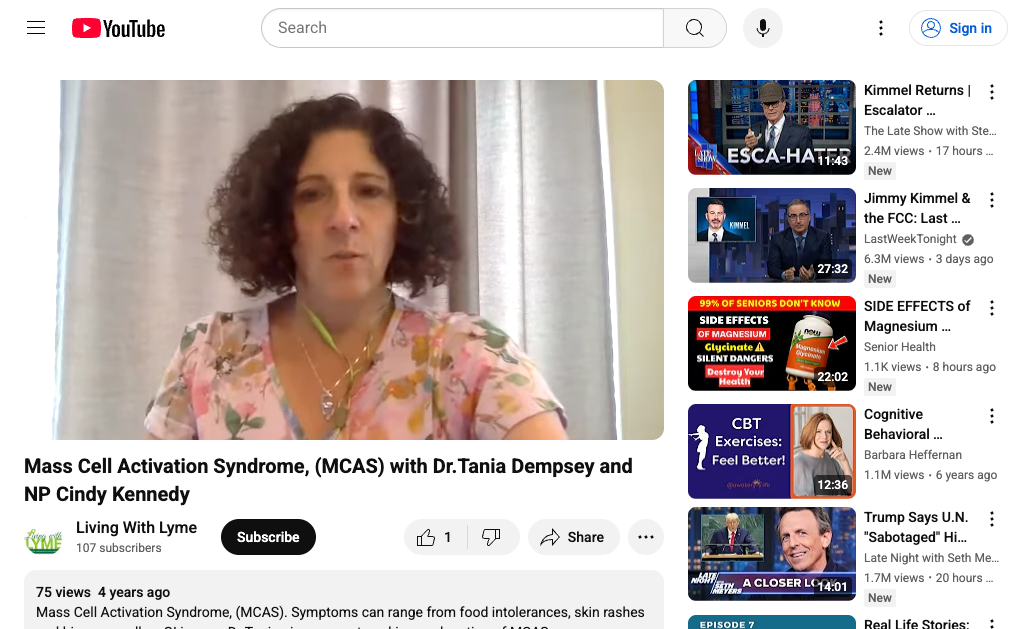Mast Cell Activation Syndrome, (MCAS) with Dr.Tania Dempsey and NP Cindy Kennedy
Dr. Tania Dempsey and NP Cindy Kennedy provide a clear, practical overview of Mast Cell Activation Syndrome (MCAS). They describe how inappropriate mast‑cell mediator release can cause multi‑system, fluctuating symptoms such as food intolerances, flushing, hives, itching, nasal/eye irritation, chest tightness, palpitations, brain fog, headaches, dizziness, and significant GI complaints (nausea, cramping, diarrhea, reflux). They discuss common triggers (foods, temperature changes, infections, stress, odors/chemicals, medications) and explain that diagnosis is clinical: a compatible history with episodic symptoms affecting multiple systems, supportive but imperfect testing for mast‑cell mediators (e.g., serum tryptase, plasma/urine histamine and metabolites, prostaglandin D2, leukotrienes, heparin—ideally collected during flares), exclusion of mimicking conditions, and improvement with anti‑mast‑cell therapy. Management emphasizes trigger identification/avoidance, a stepwise medication approach (non‑sedating H1 antihistamines; H2 blockers; mast‑cell stabilizers like cromolyn or ketotifen; leukotriene blockers; and, if appropriate, aspirin for prostaglandin‑mediated symptoms), plus supportive measures such as individualized low‑histamine dietary trials and supplements (e.g., quercetin, vitamin C) as tolerated. They note frequent comorbidity with conditions like POTS and EDS, highlight pitfalls in testing (timing, handling, variable sensitivity), and encourage patient education and careful, personalized titration of therapies to reduce symptom burden and improve quality of life.
